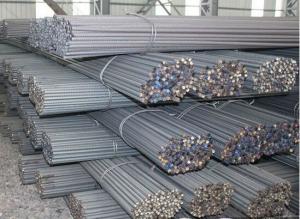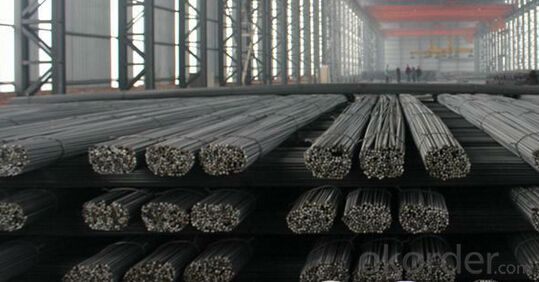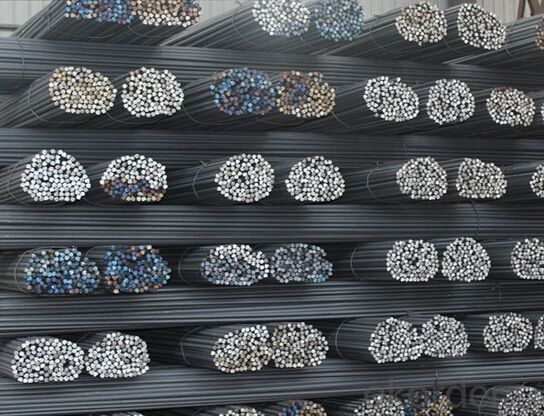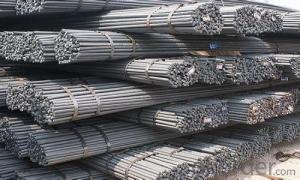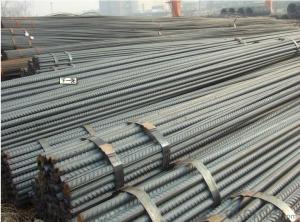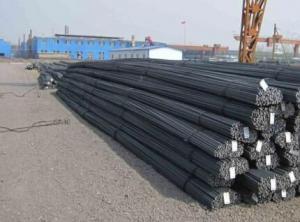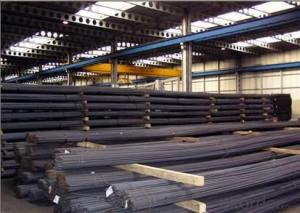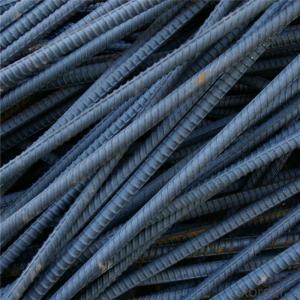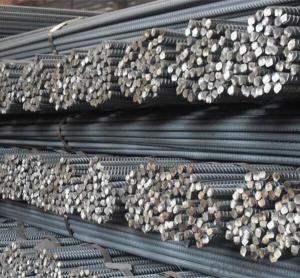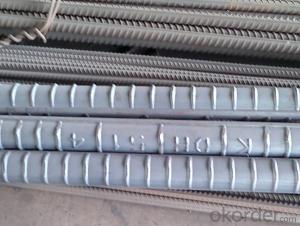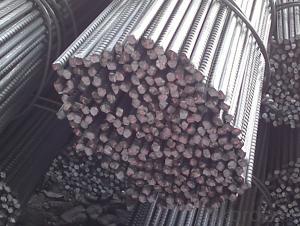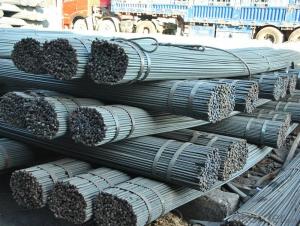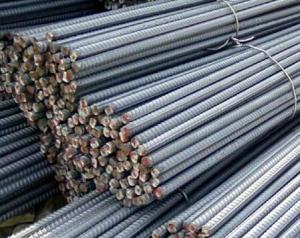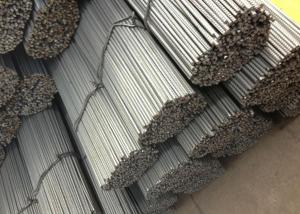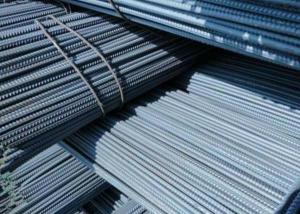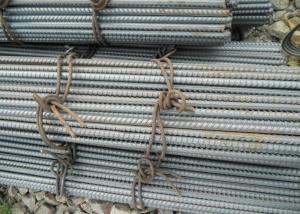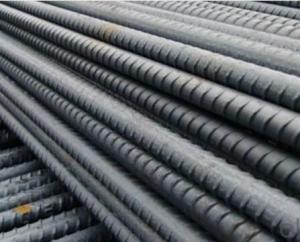ASTM A615 Grade60 Mild Deformed Steel Rebar
- Loading Port:
- Tianjin
- Payment Terms:
- TT OR LC
- Min Order Qty:
- 100 m.t.
- Supply Capability:
- 10000 m.t./month
OKorder Service Pledge
Quality Product, Order Online Tracking, Timely Delivery
OKorder Financial Service
Credit Rating, Credit Services, Credit Purchasing
You Might Also Like
Specification
Standard:
AISI,ASTM,JIS,GB,BS,DIN,API,EN
Technique:
Hot Rolled,Cold Rolled,Cold Drawn,ERW,Forged,Saw,Extruded,EFW,Spring
Shape:
U Channel,Square,C Channel,Hexagonal,Round,Rectangular,Oval,LTZ
Surface Treatment:
Galvanized,Coated,Copper Coated,Color Coated,Oiled,Dry,Chromed Passivation,Polished,Bright,Black,PVDF Coated
Steel Grade:
Q195,Q215,Q235,Q215B,Q235B,RHB335,HRB400,200 Series,300 Series,400 Series,600 Series,SS400-SS490,10#,20#,A53(A,B)
Certification:
ISO,SGS,BV,IBR,RoHS,CE,API,BSI,UL
Thickness:
6-34mm
Width:
6-34mm
Length:
12m
Outer Diameter:
6-34mm
Net Weight:
10kg
Packaging:
seaworthy packaging
ASTM A615 Grade60 Mild Deformed Steel Rebar
Details of the ASTM A615 Grade60 Mild Deformed Steel Rebar
| Standard & Grade: | GB1499-98 : HRB335,HRB400,HRB500 |
| BS4449-1997 : GR460,GR500 | |
| CAN/CSA-G30.18-M92 : 400W | |
| ASTM A615 : Gr.40, Gr.60 | |
| Diameter: | 6mm;8mm;10mm;12mm;14mm;16mm;18mm;20mm;22mm;25mm;28mm;30mm;32mm;35mm;40mm |
| Length: | 6m,9m,12m |
| Packing: | Bundle packing |
| Origin: | China |
| Application: | Construction,Road,Machinery processing,Welding fields. |
| Delivery time: | 10-25 days |
| Shipment: | By bulk vessel or Container |
| Documents: | Mill Test Certificate,Commercial Invoice,Packing List,Certificate of Origin |
Company Introduction of the ASTM A615 Grade60 Mild Deformed Steel Rebar
CNBM International Corporation is the most import and export platform of CNBM group(China National Building Material Group Corporation) ,which is a state-owned enterprise, ranked in 270th of Fortune Global 500 in 2015.
With its advantages, CNBM International are mainly concentrate on Cement, Glass, Iron and Steel, Ceramics industries and devotes herself for supplying high quality series of refractories as well as technical consultancies and logistics solution.

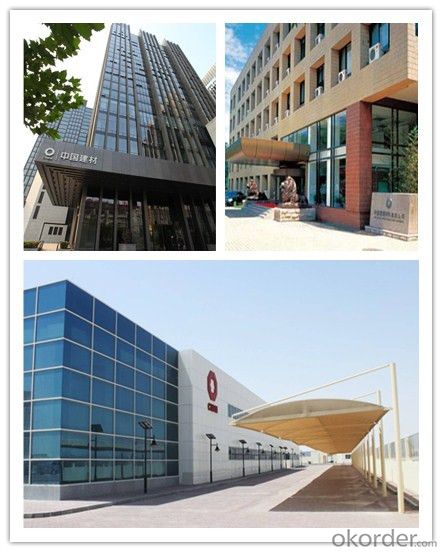
Packaging & Delivery of the ASTM A615 Grade60 Mild Deformed Steel Rebar
| Packaging Detail | Sea worthy packing /as per customer's packing instruction |
| Delivery Detail | 15 ~ 40 days after receiving the deposit |
FAQ
| Are you a trading company or manufacturer? | Manufacturer |
| What’s the MOQ? | 1000m2 |
| What’s your delivery time? | 15-20 days after downpayment received |
| Do you Accept OEM service? | Yes |
| what’s your delivery terms? | FOB/CFR/CIF |
| What's the Payment Terms? | 30% as deposit,70% before shipment by T/T |
| Western Union acceptable for small amount. | |
| L/C acceptable for large amount. | |
| Scrow ,Paybal,Alipay are also ok | |
| Why choose us? | Chose happens because of quality, then price, We can give you both. Additionally, we can also offer professional products inquiry, products knowledge train (for agents), smooth goods delivery, excellent customer solution proposals. |
| What's your available port of Shipment? | Main Port, China |
| What’s your featured services? | Our service formula: good quality+ good price+ good service=customer's trust |
| Where are your Market? | Covering more than 160 countries in the world |
- Q: Can steel rebars be used in underwater construction?
- Yes, steel rebars can be used in underwater construction. They are commonly used to reinforce concrete structures in underwater environments such as bridges, piers, and offshore platforms. The steel rebars are designed to be corrosion-resistant, ensuring their durability and strength even when submerged in water for extended periods.
- Q: How do steel rebars provide reinforcement to concrete?
- Concrete is reinforced by steel rebars, which act as tension members. When loads are applied to the concrete, such as the weight of a structure or external forces, it tends to crack and fail under tension. To counteract this weakness, steel rebars are embedded within the concrete. Made of high-strength steel, the rebars have a much higher tensile strength than concrete. During the pouring of concrete, the rebars are strategically placed throughout the structure, typically in areas where tension forces are expected. These areas include beams, columns, and slabs. As the concrete cures and hardens, it forms a strong bond with the steel rebars. When external forces are exerted on the concrete, like the weight of a building or lateral forces from wind or earthquakes, tension forces are generated within the concrete. However, instead of causing the concrete to crack and fail, the rebars bear the majority of the tension. Due to the high tensile strength of the steel rebars, they can resist the tension forces, preventing the formation of cracks and ensuring the integrity and structure of the concrete. The rebars act as reinforcement by evenly distributing the tensile forces throughout the concrete, enhancing its overall strength and durability. Moreover, rebars offer additional benefits to concrete structures. They can mitigate the effects of temperature changes, prevent shrinkage cracks, and enhance resistance to corrosion caused by environmental factors. In conclusion, the use of steel rebars significantly improves the structural integrity and lifespan of concrete, enabling it to withstand various loads and external forces over time.
- Q: Can steel rebars be used in structures with high alkaline environments?
- Yes, steel rebars can be used in structures with high alkaline environments. Steel rebars are commonly used in concrete structures and are designed to withstand various environmental conditions, including high alkaline environments. However, it is essential to ensure that the appropriate type of steel rebar is selected to prevent corrosion and maintain structural integrity in such conditions.
- Q: What are the common defects or issues associated with steel rebars?
- Some common defects or issues associated with steel rebars include corrosion, improper bending or straightening, inadequate cover or concrete protection, insufficient anchorage or lap length, and incorrect spacing or alignment.
- Q: Can steel rebars be used in swimming pool renovation work?
- Yes, steel rebars can be used in swimming pool renovation work. Steel rebars provide strength and reinforcement to the structure, ensuring the longevity and durability of the swimming pool.
- Q: How are steel rebars priced in the market?
- Steel rebars are typically priced in the market based on various factors such as the current demand and supply dynamics, raw material costs, production and transportation expenses, market competition, and any additional factors that may affect pricing.
- Q: Can steel rebars be used in structures subjected to extreme temperatures?
- Yes, steel rebars can be used in structures subjected to extreme temperatures. However, the selection of appropriate steel and the implementation of proper design and construction techniques are crucial to ensure the rebars' performance and durability under such conditions.
- Q: How do steel rebars contribute to the overall structural performance of a building?
- Steel rebars play a crucial role in enhancing the overall structural performance of a building. These reinforced steel bars are primarily used in concrete construction and provide strength and stability to the structure. Firstly, rebars reinforce the concrete by increasing its tensile strength. Concrete is highly resistant to compression forces, but it is weak when it comes to tension. By adding steel rebars, which have excellent tensile strength, to the concrete, the resulting composite material becomes much stronger and more resistant to bending or cracking under pressure. Moreover, rebars improve the durability and longevity of the building. Concrete structures are subjected to various forces such as wind, earthquakes, and heavy loads. Steel rebars act as a reinforcement network, distributing these forces throughout the concrete and preventing localized damage. This reinforcement helps to minimize the risk of structural failure, ensuring the building can withstand the test of time and environmental conditions. In addition, rebars contribute to the overall stability of the structure. By reinforcing concrete columns, beams, and slabs, rebars enhance their load-bearing capacity. This enables the building to support heavier loads without excessive deflection or collapse. The increased stability provided by the rebars also allows for more flexible and creative architectural designs, as they provide the necessary structural support for complex and unique building shapes. Furthermore, steel rebars are essential in seismic zones where earthquakes are common. The ductility and flexibility of steel allow it to absorb and dissipate the energy generated during an earthquake. This prevents the building from undergoing severe damage and helps it to retain its structural integrity, minimizing the risk to occupants. Overall, steel rebars significantly contribute to the overall structural performance of a building by enhancing its strength, durability, stability, and resistance to various forces. Their use ensures that the structure remains safe, long-lasting, and capable of withstanding the demands placed upon it, making them an indispensable component in modern construction.
- Q: Can steel rebars be galvanized for additional protection?
- Yes, steel rebars can be galvanized for additional protection. Galvanizing is a process where a layer of zinc is applied to the surface of the steel rebar. This layer acts as a protective barrier, preventing corrosion and extending the lifespan of the rebar. Galvanized steel rebars are commonly used in construction projects where exposure to moisture, chemicals, or other corrosive elements is expected. The galvanizing process involves dipping the steel rebars into a bath of molten zinc or applying a zinc-rich coating through a hot-dip galvanizing or electroplating process. This results in a durable and corrosion-resistant coating that provides additional protection to the steel rebar, increasing its longevity and reducing maintenance requirements. Overall, galvanizing steel rebars is an effective method of enhancing their protection against corrosion and ensuring their long-term durability in various applications.
- Q: What is the difference between steel rebars and steel mesh?
- Steel rebars and steel mesh are both commonly used in construction projects to reinforce concrete structures, but they have some key differences in terms of their design and application. Steel rebars, also known as reinforcing bars, are long, cylindrical steel rods that are typically used to provide tensile strength to concrete structures. These rebars are usually placed in a grid-like pattern within the concrete, and they help to prevent cracking and enhance the overall structural integrity of the concrete. Rebars are available in various sizes, and they are typically used in applications where a high amount of tensile force is expected, such as in columns, beams, and slabs. On the other hand, steel mesh, also known as wire mesh or welded wire fabric, consists of a series of interconnected steel wires that are welded together to form a grid-like pattern. This mesh is usually manufactured in large rolls and can be easily cut or bent to the desired shape. Steel mesh is primarily used to provide both tensile and shear strength to concrete structures. It is often used in applications where a lower amount of tensile force is expected, such as in walls, foundations, and pavements. In terms of installation, steel rebars are typically placed and secured within the concrete formwork before the pouring of concrete. They are usually positioned at specific locations as per the structural design requirements. Steel mesh, on the other hand, is laid on top of the formwork or within the concrete pour itself, providing reinforcement throughout the entire concrete structure. Both steel rebars and steel mesh have their own advantages and disadvantages. Rebars offer greater tensile strength and are ideal for applications where heavy loads or high amounts of force are expected. However, they can be more time-consuming and labor-intensive to install due to their individual placement and tying process. Steel mesh, on the other hand, offers easier and faster installation due to its continuous form, and it is more commonly used in smaller-scale projects or applications where lighter loads are expected. In summary, while both steel rebars and steel mesh serve the purpose of reinforcing concrete structures, they differ in terms of their design, installation method, and application. The choice between rebars and mesh depends on the specific structural requirements, project scale, and load expectations. Consulting with a structural engineer or construction professional is recommended to determine the most suitable reinforcement solution for a particular project.
Send your message to us
ASTM A615 Grade60 Mild Deformed Steel Rebar
- Loading Port:
- Tianjin
- Payment Terms:
- TT OR LC
- Min Order Qty:
- 100 m.t.
- Supply Capability:
- 10000 m.t./month
OKorder Service Pledge
Quality Product, Order Online Tracking, Timely Delivery
OKorder Financial Service
Credit Rating, Credit Services, Credit Purchasing
Similar products
Hot products
Hot Searches
Related keywords
